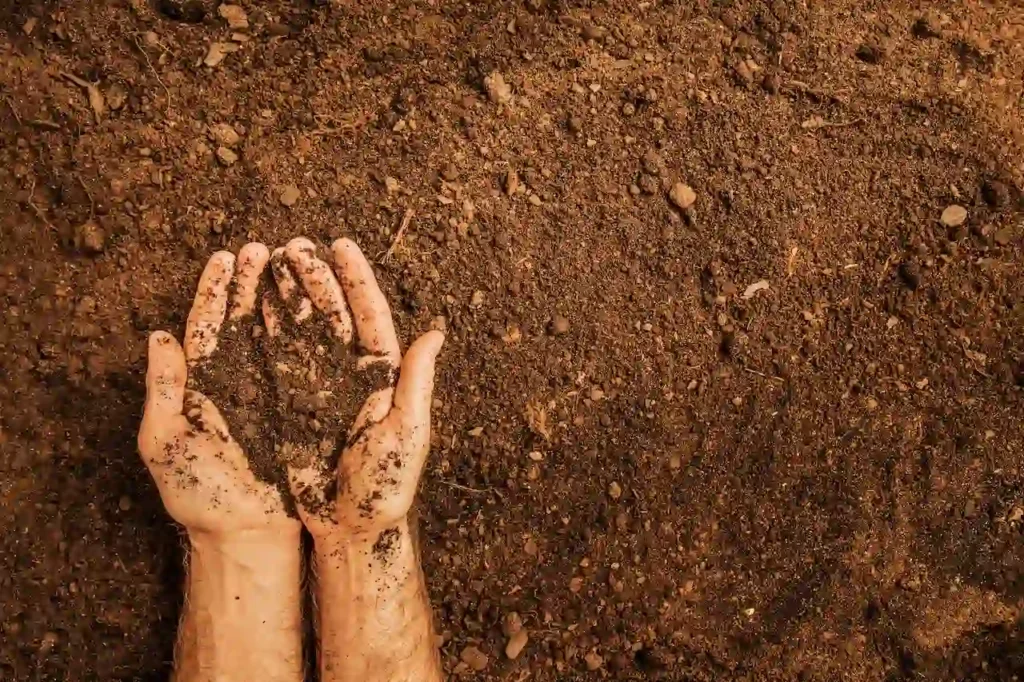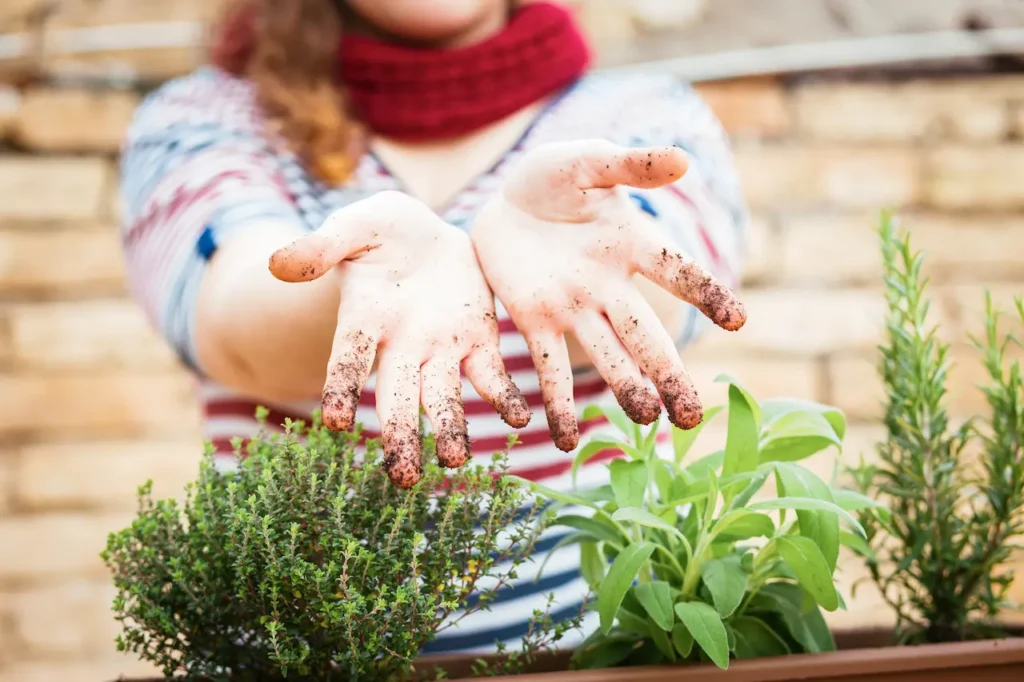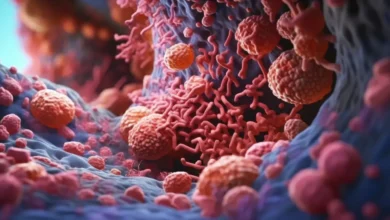How Putting Your Hands In Soil Helps Gut Microbiome
The Healing Power of Soil: How Regular Contact with Soil Can Improve Your Gut Microbiome and Overall Health
How putting your hands in soil helps gut microbiome and why you should get into the garden more often!
In our modern, fast-paced world, the idea of getting your hands dirty in the soil might seem like a quaint or even unnecessary activity. Yet, as we increasingly distance ourselves from nature, research is revealing the profound benefits that reconnecting with the earth—especially soil—can have on our health. This article explores the critical relationship between the soil microbiome and the human gut microbiome, the significant benefits of regular soil contact for skin and gut health, and practical ways to incorporate soil into our lives for better overall well-being.
The Profound Connection Between Soil Microbes and Gut Health
The Human Microbiome: An Overview
The human gut microbiome is a complex and dynamic ecosystem, home to trillions of microorganisms, including bacteria, viruses, fungi, and archaea. These microbes are not just passive inhabitants; they actively participate in vital processes such as digestion, immune function, and even mood regulation. The gut microbiome is a critical component of our overall health, influencing everything from how we metabolize food to how we respond to stress.
What many people may not realize is that the diversity and health of our gut microbiome are closely tied to the microorganisms found in the soil. Soil, a rich and diverse ecosystem in its own right, harbors a vast array of microbial life. When we interact with soil, whether through gardening, playing, or simply spending time outdoors, we introduce these beneficial microbes into our bodies, enriching our internal ecosystems and promoting better health.

Read one of our favorite blogs: What Is The Vagus Nerve
Soil as a Reservoir of Microbial Diversity
Soil is one of the most biodiverse environments on Earth, teeming with countless species of bacteria, fungi, protozoa, and other microorganisms. These soil microbes play essential roles in nutrient cycling, plant health, and ecosystem functioning. Importantly, they also interact with the human microbiome, particularly when we come into direct contact with soil.
Historically, humans have maintained a close relationship with the soil, engaging in activities like agriculture, hunting, gathering, and simply living in nature. This constant interaction with the earth allowed us to naturally inoculate our bodies with a wide range of beneficial microbes. However, with the advent of modern urban living, characterized by increased hygiene, processed foods, and reduced contact with nature, we have seen a significant decline in the diversity of our gut microbiome. This reduction in microbial diversity has been linked to a range of health issues, including autoimmune diseases, allergies, and metabolic disorders.
How Modern Lifestyles Impact Our Microbial Diversity
The Impact of Urbanization on Microbial Diversity
As urbanization continues to spread, more people are living in environments that are highly sanitized and disconnected from nature. While these changes have undoubtedly improved public health in many ways—reducing the spread of infectious diseases, for instance—they have also inadvertently limited our exposure to the diverse microbes found in natural environments like soil.
Studies have shown that people living in urban areas have less diverse gut microbiomes compared to those living in rural or natural settings. This loss of diversity is concerning because a rich and varied gut microbiome is essential for a robust immune system, efficient digestion, and protection against a variety of diseases.

Read all about: Loss of Gut Microbiome
The Consequences of Reduced Soil Contact
The decline in soil contact is particularly evident in children growing up in urban environments, where opportunities to play in natural settings are limited. Research indicates that children who grow up in rural areas or on farms, where they are regularly exposed to soil and farm animals, tend to have more diverse gut microbiomes and are less likely to develop allergies, asthma, and other immune-related conditions.
This connection between soil exposure and health is supported by the “hygiene hypothesis,” which suggests that the rise in immune-mediated diseases is partly due to reduced exposure to the diverse microbial environments that our ancestors routinely encountered. By reintroducing regular contact with soil into our lives, we can potentially restore some of the microbial diversity that is critical for immune system development and overall health.
The Benefits of Soil Contact on Skin and Gut Health
Enhancing Skin Microbiome Diversity
Our skin, the body’s largest organ, is also home to a complex community of microbes that play a crucial role in protecting us from pathogens, regulating our immune system, and maintaining overall skin health. Recent studies have shown that direct contact with soil can significantly increase the diversity of the skin microbiome.
For example, in a study where volunteers rubbed their hands with soil and plant materials, researchers observed a marked increase in the diversity of skin bacteria. This increased diversity is beneficial because it enhances the skin’s ability to ward off harmful microbes and supports the overall immune system. The skin microbiome acts as the first line of defense against environmental pathogens, and maintaining a diverse skin microbiome is essential for preventing infections and inflammatory skin conditions.
Soil Contact and Immune System Health
The immune system relies heavily on the diversity of the microbiomes that inhabit our bodies. The “biodiversity hypothesis,” an extension of the hygiene hypothesis, suggests that exposure to diverse natural environments, including soil, can reduce the risk of immune-mediated diseases. This is because regular contact with soil helps to populate our bodies with a wide range of beneficial microbes, which play a crucial role in training our immune system to distinguish between harmful and harmless substances.
For instance, children who grow up on farms or in rural areas are exposed to a greater variety of microorganisms, both from the soil and from animals. This exposure is thought to help their immune systems develop a more balanced response, reducing the likelihood of developing allergies and autoimmune diseases. Even in adults, regular exposure to soil and its microbial inhabitants can boost immune function, reduce inflammation, and improve overall health.
Practical Ways to Reconnect with Soil
Gardening: A Natural Way to Boost Your Microbiome
One of the most effective and enjoyable ways to reconnect with soil is through gardening. Whether you have a large backyard or just a small balcony, gardening allows you to engage directly with the soil, introducing beneficial microbes into your body. The act of digging, planting, and harvesting not only provides physical exercise but also helps to inoculate your skin and gut with a variety of microorganisms that can enhance your health.
Gardening has long been associated with numerous mental and physical health benefits, including reduced levels of stress, anxiety, and depression. These benefits are partly due to the exposure to soil microbes, which can influence the gut-brain axis—a communication network that links the gut microbiome with the brain and plays a role in regulating mood and cognitive function.
Outdoor Activities and Nature Exposure
For those who may not have access to a garden, there are plenty of other ways to reconnect with soil and nature. Activities like hiking, camping, and mountain biking are excellent ways to immerse yourself in natural environments, where you can come into contact with a diverse array of microbes. Spending time in parks, forests, and other green spaces has been shown to have numerous health benefits, including improved mood, better cognitive function, and enhanced immune function.
Even simple activities like walking barefoot on natural ground, playing in the dirt with children, or volunteering for environmental conservation projects can help you reconnect with the earth and its microbial inhabitants. These activities provide a natural way to increase your exposure to beneficial microbes, supporting a healthy gut and overall well-being.
Incorporating Soil into Daily Life
Incorporating soil into your daily life doesn’t have to be complicated. Even small changes, like adding a few potted plants to your living space or using soil-based products for skincare, can make a difference. Additionally, spending time in community gardens or participating in urban gardening initiatives can provide you with regular opportunities to engage with soil, even in a city setting.
Another practical approach is to encourage children to play outside and explore nature. Studies have shown that children who play in dirt and natural environments tend to have healthier microbiomes and stronger immune systems. By fostering a connection with nature from a young age, we can help ensure that the next generation enjoys the many benefits that come from a diverse and balanced microbiome.

The Science Behind Soil Microbes and Gut Health
The Role of Soil Microbes in Nutrient Absorption and Immune Function
Soil microbes play a crucial role in the health of plants, and by extension, the health of the humans who consume those plants. When plants grow in healthy, microbe-rich soil, they absorb more nutrients, which are then passed on to us when we consume these plants. This process not only supports a healthy gut microbiome but also enhances our overall nutritional intake.
In addition to their role in nutrient absorption, soil microbes have been shown to influence immune function. Certain soil bacteria, such as Mycobacterium vaccae, have been found to have anti-inflammatory effects on the brain, potentially reducing stress and improving mood. This connection between soil microbes and mental health underscores the holistic benefits of regular soil contact.
Soil Microbes and Disease Prevention
The diversity of microbes in soil is not only beneficial for supporting a healthy gut microbiome but also plays a role in disease prevention. Soil microbes can help suppress the growth of harmful pathogens in the soil, which in turn reduces the risk of these pathogens entering the food supply. By maintaining a diverse soil microbiome, we can enhance the resilience of crops against diseases, leading to healthier and more nutritious food.
Furthermore, the parallels between soil ecology and gut health suggest that the principles used to promote healthy soil—such as maintaining diversity and avoiding the overuse of chemicals—can also be applied to human health. Just as a healthy garden relies on a variety of creatures to thrive, a balanced gut microbiome depends on a multitude of bacteria, fungi, and other microscopic partners to support digestion, immune function, and overall health.
Rewilding Our Microbiomes: The Path to a Healthier Future
The Case for Rewilding
As we continue to learn more about the intricate connections between soil health and human health, it becomes clear that we need to “rewild” our microbiomes. Rewilding, in this context, refers to the process of reintroducing the diverse range of microbes that our ancestors regularly encountered into our modern lives. This can be achieved by increasing our exposure to natural environments, consuming fresh, organic foods, and adopting practices that support microbial diversity.
Rewilding our microbiomes is not just about improving individual health; it also has broader implications for public health and environmental sustainability. By promoting practices that enhance soil health, such as organic farming and reduced chemical use, we can protect the environment while also ensuring that future generations have access to nutritious food and a healthy microbiome.
The Importance of Sustainable Soil Practices
To protect both human health and the environment, it is crucial to support sustainable soil practices. This includes promoting organic farming, reducing the use of synthetic chemicals, and encouraging practices that enhance soil biodiversity. By maintaining healthy, microbe-rich soil, we can ensure that our food supply is not only nutritious but also supports the health of our microbiome.
Sustainable soil practices also play a key role in combating climate change. Healthy soils act as carbon sinks, sequestering carbon dioxide from the atmosphere and mitigating the effects of global warming. By promoting practices that enhance soil health, we can contribute to a more sustainable and resilient future for both people and the planet.
Conclusion: Embrace the Dirt for a Healthier You
Incorporating regular contact with soil into your life can have profound benefits for your skin, gut microbiome, and overall health. Whether through gardening, outdoor activities, or simply allowing yourself and your family to play in the dirt, you can tap into the healing power of nature. As science continues to uncover the many ways in which soil microbes support our well-being, it’s clear that a little dirt really can be good for you.
By understanding and embracing the connection between soil and health, we can take proactive steps to nurture our microbiomes and improve our quality of life. So, the next time you see a patch of dirt, don’t shy away—dig in, and let nature do the rest. Your body, mind, and microbiome will thank you.
About the Brain & Gut Health Team
Brain & Gut Health are passionate about bringing real information and experiences to our readers. We do not have sponsored content that lead you astray and all of our information comes from scientists or sites on the internet that are reliable and have real information. We care about getting humans real information and help when it comes to restoring brain and gut health. When it comes to living a healthy and long life, gut health is so important so let’s start by going back to our human roots and eating real foods that are not processed, don’t contain chemicals or preservatives and are good for our brain, guts and skin.
References:
- https://www.ncbi.nlm.nih.gov/pmc/articles/PMC6780873/#:~:text=Thus%20microbes%20contribute%20primarily%20to,healthy%20gut%20microbiota%20%5B6%5D.
- https://theconversation.com/healthy-soils-are-good-for-your-gut-brain-and-wellbeing-heres-why-237681
- https://www.tinyhealth.com/blog/the-power-of-dirt-how-exposure-to-soil-and-farm-animals-can-benefit-your-gut-microbiome



